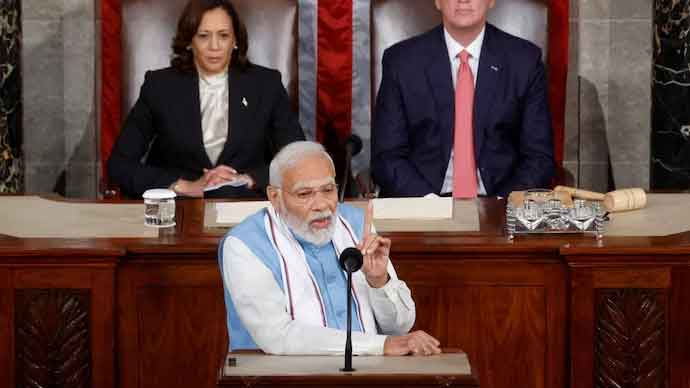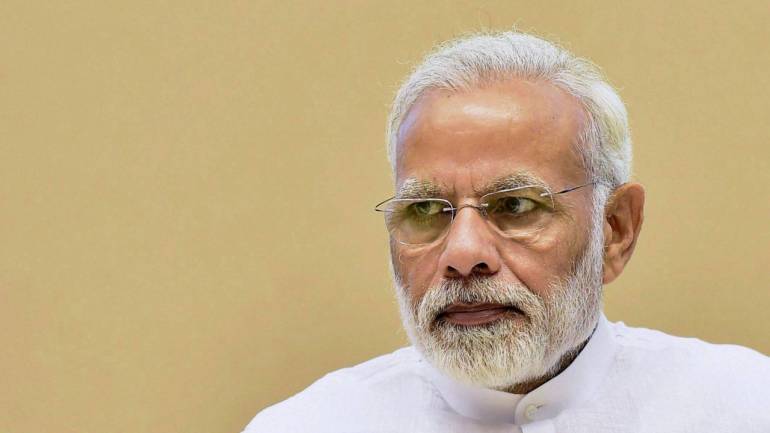
Again, he was at it, that charming show on two legs, playful and coy. Indian Prime Minister Narendra Modi has been burning the charismatic fuel of late, making the necessary emissions in visiting friendly countries. Each time, he seems to be getting away with more and more, currying (pun intended) favour with his hosts and landing the necessary deals.
For all the excitement of going to a fellow cricket loving state such as Australia, no one was under any illusion about the prize. Easy gains there on matters of commerce, education and security: a pliant PM, a pliant Cabinet, a political and business class hungering for access to a country which recently passed China as the most populous on the planet. In all of this, Modi had the audacity to urge Australian Prime Minister Anthony Albanese to do something about reported acts of vandalism against Hindu temples in Melbourne.
In scale, nothing was going to compare to courting the superpower that, for all its might, teeters. On his June visit to the United States, Modi was building on earlier efforts to show India as a viable partner in a number of areas.
The Modi visit exemplified the calculations of the moment. The US has been rather clumsy of late, engaging in a foreign policy described by former US Secretary of the Treasury, Lawrence Summers, as “a bit lonely”. US foreign policy makers have tended to miss a bit or two, not least understanding the value Indian officials place on their military relationship with Moscow. The Indian political establishment is also mindful about how useful New Delhi is seen in Washington, the traditional counter to Beijing. That counter, however, is seen as subordinate to maintaining US supremacy under the lecturing guise of the “rules-based order”.
Such poses are simply not acceptable in either the Modi worldview or those of Indian policy makers. As India’s External Affairs Minister Subrahmanyam Jaishankar has opined with a tart frankness, Washington’s power can be described as “a transient moment of American unipolarity”. To assume, arrogantly, that history was at its end at the conclusion of the Cold War was a “Eurocentric analysis” jettisoned by nationalism. It is exactly such nationalism that Modi brims with.
The joint statement from the two countries made familiar, and predictable assumptions. Much of it was frothy. Both Biden and Modi “affirmed a vision of the United States and India as among the closest partners in the world – a partnership of democracies looking into the 21st century with hope, ambition, and confidence.” Naturally, there is no mention of Modi’s nationalistic sectarianism, the Hindutva brand of policy that tolerates, or at least gives a rather generous nod, to communal violence, the repression of Muslim protesters, and an overall atmosphere of terror that has seen journalists murdered for rebuking the BJP government.
Cutthroat business remains business, and the parties see technology as the aphrodisiac to their newly bloomed relationship, manifested by the Initiative on Critical and Emerging Technology (iCET) announced in January 2023. “The leaders recommitted the United States and India to fostering an open, accessible, and secure technology ecosystem, based on mutual confidence and trust that reinforces our shared values and democratic institutions.”
In his second address to Congress, Modi spruiked the notion that New Delhi and Washington had forged “a defining partnership of this century”, glorifying in the advances made by the Indian economy and technology, including strivings in healthcare. “A lot has changed since I came here seven summers ago but a lot has remained the same – like our commitment to deepen the friendship between India and the United States.”
Various remarks followed, many sitting uncomfortably with the truth. “India’s democratic values (are such that) there’s absolutely no discrimination neither on the basis of caste, creed, age or any kind of geographic location.” The same theme is repeated regarding women. “India’s vision is not just the development which benefits women – it is of women-led development where women lead the journey of progress.”
In all this foamy self-celebration, it was hard to forget that Modi was banned from travelling to the United States in 2005 while he was still Gujarat Chief Minister. The decision was based on Modi’s failure to prevent particularly vicious riots in his state in 2002, leading to over a thousand deaths. The US State Department’s reasoning for denying a visa lay in the International Religious Freedom Act, a 1998 law passed by Congress designed, in principle, to combat religious persecution.
On getting wind that the then Chief Minister was going to be visiting the US, a number of Indian-American groups, including the Indian American Muslim Council, began a lobbying campaign with some zeal and ultimate success. Katrina Lantos Swett, Vice Chairwoman of the United States Commission on International Religious Freedom, a body created by the 1998 statute, explained at the time that Modi would not be “granted the privilege of a US visa because of the very serious doubts that remain and hang over Modi relative to his role in the horrific events of 2002 in Gujarat.”
On this occasion, the opposition was present, though less effective. Democratic House Representatives Rashida Tlaib, Alexandria Ocasio-Cortez, Cori Bush and Kweisi Mfume chose to boycott Modi’s address to Congress. A statement by Tlaib, Bush, Omar and Jamaal Bowman, in noting the Indian PM’s role in the bloody Gujarat riots, mentioned his government’s appetite for targeting “Muslims and other religious minorities”, enabling “Hindu nationalist violence”, undermining democracy, targeting journalists and dissidents, and suppressing criticism through using internet shutdowns and censorship.
In 2023, Modi had little reason to fear either rebuke from the Biden administration, or censure from Congress. India is now seen as more useful than ever, and its canny leader does not need lecturing about his own band of dangerous religious authoritarianism. Best, then, to drop the democratic values act, a show that is becoming increasingly absurd.
Dr. Binoy Kampmark was a Commonwealth Scholar at Selwyn College, Cambridge. He currently lectures at RMIT University. Email: [email protected]














































